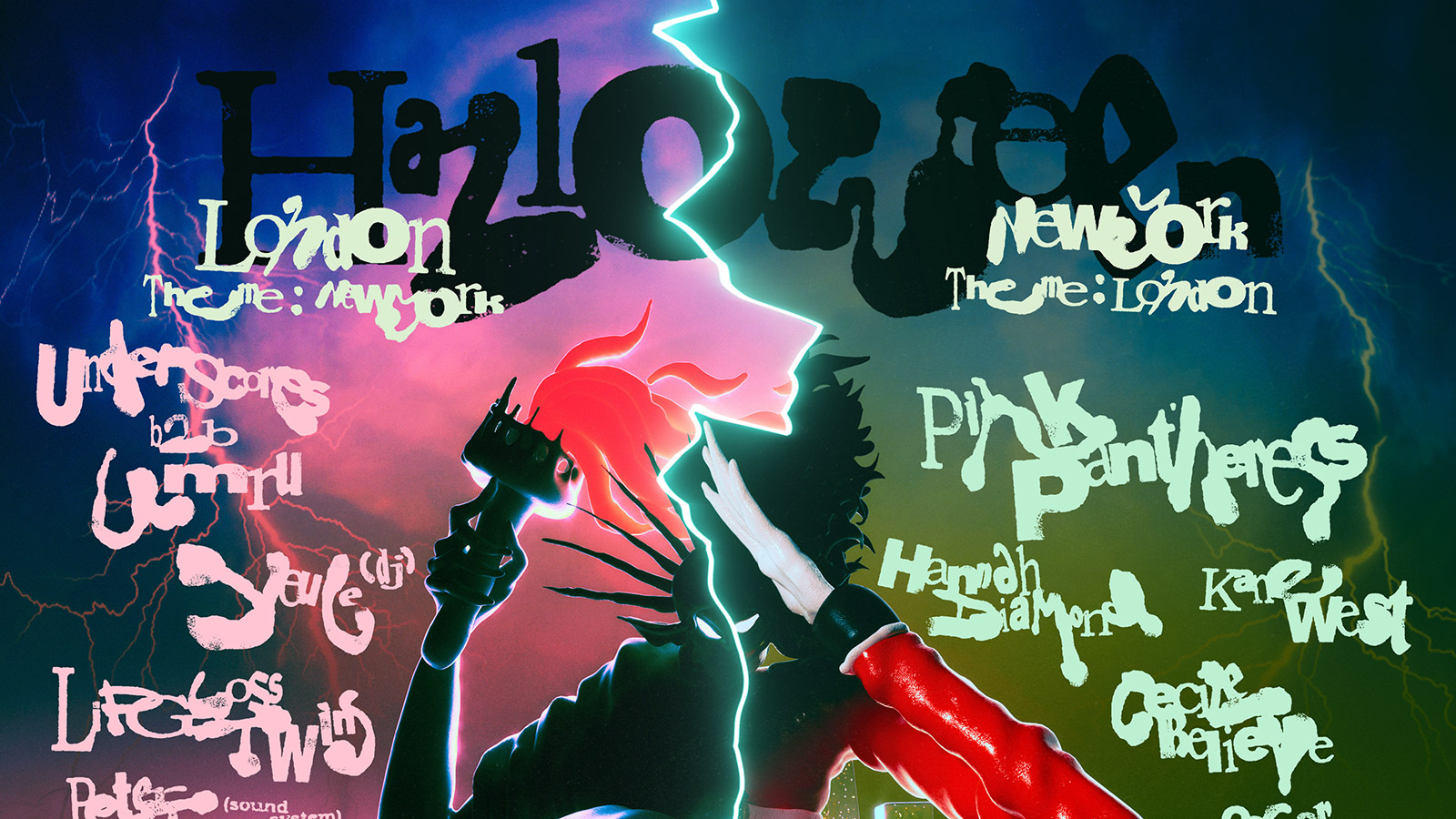

“You look gorgeous! Where are you coming from?” Mahalia Burkmar beams through the screen the moment our call begins.
Her greeting carries a palpable “girl’s girl” undertone, reminiscent of a friend hyping you up for a night out. It’s a warmth that instantly sets the tone for our conversation — and perfectly mirrors the spirit of her latest project, Luvergirl.
Two years on from her second album IRL — a record steeped in identity, boundary-setting, and demanding the love she knows she deserves — the Leicestershire singer-songwriter has emerged from a period of healing with the new EP. She proudly wears the self-proclaimed title of “lovergirl”: not simply someone who loves love, but someone unafraid to fall in or out of it, to feel it all. “Falling in love doesn’t scare me, falling out of love doesn’t scare me, the pain doesn’t scare me,” she says. “If anything, it kind of inspires me.”
Ironically, it was a breakup that sparked the Luvergirl era. Mahalia found a liberating silliness in letting go, and not taking everything so seriously. “IRL was born out of COVID. All of the pain, the trials and tribulations,” she reflects. “I completely spiralled, I crashed out the whole of 2020. Towards the end of last year I started just chilling out a bit, calming the fuck down, and thinking about what I want to do next. I went through a breakup, and I started to get a bit silly in myself."
Get the Best Fit take on the week in music direct to your inbox every Friday
That levity bled straight into the writing. “My breakup and the project are two babies together,” she says. “It’s not strange to me that they’re happening at the same time. On a personal level, I think I’ve been suppressing a lot of myself for quite awhile. I feel like I’ve come out of the turbulence and turmoil and I’m moving into something that actually feels quite fun and airy. IRL felt very serious, it was just very straightforward UK R&B. There wasn’t really any room for me to play around.”
Luvergirl, by contrast, became a canvas for vibrant, unpredictable strokes of colour, with movement as its heartbeat. “When I started working on new music last year, I knew I wanted to make people move, regardless of BPM or tempo,” she says. “It should feel fun, free, and sexy, whether it’s jumping in the club or a slow whine.”

Mahalia describes IRL as “a Sunday listening kind of album” — she played it safe. If IRL is a quiet Sunday afternoon, Luvergirl is a Friday night. It’s restless and full of possibility. “With IRL, I wanted to make a classic. Something that mums and daughters would play together, and then their daughters would play it to their children,” she says, drawing out a heartwarming illustration of a timeless work intended to create cherished bonds between generations of women. “I don’t think Luvergirl is a Saturday night, it’s not quite up there,” Mahalia laughs, “But I’d love for it to be a Friday night. It could be like going for drinks with the girls, going out for dinner, maybe even a date night. At this stage, Mahalia finds herself stepping into a chapter defined by both fun and fearlessness. This time, she still wants her music to unify women, but in a more celebratory way.
“I want the [EP] to offer female connection,” she tells me. “In school, I really struggled to keep female friends, and as I got older I was relying on my romantic relationships with men to hold me down. I was deeply craving those connections with other women where you drink wine, talk about what you want to without thinking about the time going by. When I went through my breakup, I really started to hone in on the close girlfriends that I do have. Now I look at my girlfriends and I literally feel like I have six wives. I’d be so fine not having a partner for a while knowing these women are in my life.”
Settled and assured, Mahalia radiates an indubitable glow as she recounts the safe space held amongst her friends. However, it’s not the only source of solace that she tapped. Mahalia tells me that she’s flying to Jamaica tomorrow, a place that has served as both personal and creative sanctum. “Oh my god, I’ve literally just packed my bags!” she smiles. Her trips to the island arose from a calling, compelling her to spend a month there making music, reconnecting with her roots and immersing herself within the culture central to her own identity. “Being in Jamaica is grounding,” she says. “It makes me want to laugh and dance and have a nice time, and all of that just ended up in the music.”
That influence is clearest on Luvergirl’s collaborations. She speaks fondly of her sessions with local talents like Masicka, Bayka, and Lila Iké, each one bringing out something new in her voice. “Bayka’s voice on record is one of the maddest things I’ve ever heard. I wish more people in the UK knew him.” There’s a subtle but pointed desire in her words: to bridge musical worlds and celebrate Jamaican artistry within her own platform, without treating it like a borrowed trend.
The sessions themselves were intense — revolving doors of producers arriving daily with fresh beats, ideas exchanged at a pace that left her exhilarated. “It was the maddest thing I’ve ever done in my life,” she laughs. “I met, like, fifty producers, and everybody played me different beats.” That whirlwind energy seeped into the songs, giving them a looseness and vitality that contrasts sharply with the more serious undertones of IRL.
Although Luvergirl comes from a place of lightness, it isn’t shallow. Much of its emotional charge comes from the messy thrill of chasing something — or someone — you probably shouldn’t. “There’s something sexy about knowing you shouldn’t pick up the phone,” Mahalia confesses. She half-jokingly calls that energy “delulu,” borrowing from TikTok slang that refers to unapologetically irrational romantic decisions. “I think it’s sweet, in a way. That pull, that push, that whole ‘I know you’re bad for me but I’m still here’. It’s so human.”
On “Pick Up The Pace”, featuring Bayka, that pull comes over sumptuous guitar and a deep, plucky bassline, as she calls out an emotionally unavailable lover to “get a move on.” With Lila Iké on “Pressure Points”, she plays with the tension of desire and pain, singing about the body’s sensitive spots with both vulnerability and heat. The shuffling beats and flirtatious melodies of “Impress Me” soundtrack the first spark of attraction across a crowded room. And on “Different Type of Love” with Masicka and Ty Dolla $ign, she leans into the danger of wanting someone she shouldn’t, floating over a twinkling harp line that recalls late-90s R&B duets.
The throughline is control. This isn’t maintained in the rigid sense, but in knowing that she’s steering the ride even when she’s choosing chaos. “Even in the moments where I may seem like I’m out of control, I’m still in control,” she says. That statement feels like the key to understanding Luvergirl. It’s not a loss of self in the name of fun, but a reclaiming of fun as a form of selfhood. This is not a new Mahalia per se, but it’s her allowing the parts of herself that she’s hidden away to finally shine through.
That extends to how she’s using her platform. Alongside her own releases, Mahalia has been intentional about spotlighting underrepresented voices in the UK R&B conversation through her Mahalia Presents live nights, as well as leading collaborative co-writing sessions. “It’s not a sense of responsibility so much as instinct,” she says. “I think I take after my mum, where I have this need to nurture, to look after people and uplift them. I’ve always been like that. I want people to win, even if it means them standing on my shoulders.”

For all of its playful spirit, Luvergirl ends on a melancholic note with “Farewell,” a ballad written after her grandmother’s death. Initially, she didn’t plan to include it, but eventually realised it was essential to the arc. “I owe everything to her. My lovergirl nature, my body, even the beauty mark we share. Everything that I used to hate about my body that I now love comes from her,” she tells me softly. “She’s the reason I’m here, you know? It feels like an ode to her.” In sequencing, it becomes the moment where the Friday night fades, and the listener is left to wind down.

At 27, Mahalia feels the edges of something shifting. “I can feel it in everything. I’m not on the edge of my seat, but something’s coming,” she says. The transition doesn’t scare her; if anything, it excites her. “I just want to have fun with my creativity. I don’t want to overthink where it’s going. Volume 2? Maybe. Or something completely different.” Nonetheless, this is only the start.
And through it all, she’s protecting the joy that she’s worked hard to manifest. “Really and truly, at the minute, all I feel is joy. I’ve still had my moments of feeling like my emotions are catching up to me, but Luvergirl has brought me so much joy. I don’t think anything could have penetrated that because I was having the best time.”
For now, she sums up this chapter in two words: “Silly and fab,” she laughs. In a culture that often expects women to stay measured, guarded, and endlessly self-aware, Mahalia’s Luvergirl era is a reminder that joy, messiness, and connection aren’t essentials as opposed to indulgences. Respite is over, and Mahalia is allowing herself to fall headfirst, dance until her feet ache, and see what the night has in store — refusing to apologise for wanting to experience it all.
The Luvergirl EP is out now via Atlantic

 1 month ago
11
1 month ago
11


















 English (US) ·
English (US) ·